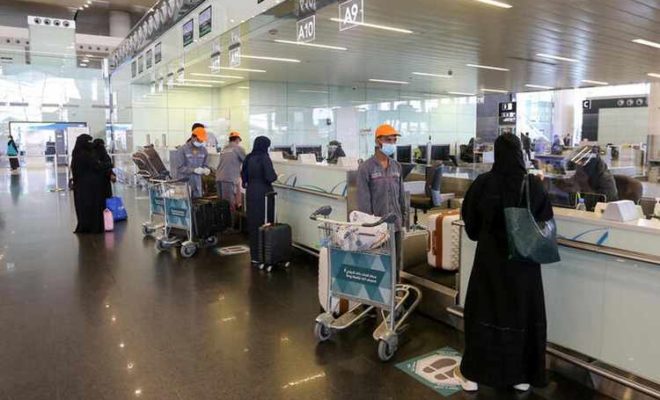GCC TELEMEDICINE COMPANIES REPORT COVID-RELATED SURGE IN USAGE

Telemedicine industry leaders in Bahrain and the wider GCC have reported a significant rise in the demand during the COVID-19 period. According to new research from Think Tank Derasat, government agencies and ministries across the region, including Bahrain’s Ministry of Health and National Health Regulatory Authority, has played a key role in urging healthcare facilities to offer telemedicine services, which include the delivery of remote clinical services, from teleconsultations through to online prescriptions, via computer and smartphone.

The report follows the announcement by vHealth, a UAE-based telehealth provider, that has seen a 500 percent increase in the usage of their app between March and September 2020. The report suggests there are multiple reasons behind the fast adoption, with necessity being one, but improved privacy around traditionally sensitive issues like mental health being another.

According to Sarmad Ahmad, Managing Director of Bahrain-based mental health start-up Saaya Health, there are few Arabic speaking therapists within the region, but many more globally. This plays into the hands of online services. He has also seen a big rise in Gulf businesses adopting Employee Assistance Programmes (EAP), to support employees with their mental health and the challenges of living through the pandemic.
“COVID-19 has been a gamechanger for attitudes towards the treatment of mental health across the region. I would say we have moved forward 5-10 years in the space of less than one year. We have seen an accelerated cultural shift and there is a new support network growing up for personal therapy, and for EAP. We have seen a lot of customers from outside of Bahrain, and in particular, from Saudi Arabia, who are attracted by our telemedicine ecosystem and the capacity we have to reach out to international providers.”
Saaya Health is one of a number of telemedicine start-ups in Bahrain that also includes Cura, Doctori, and Weyak. According to Dr. Mohamed AlGassab, Operation Director at Cura, the pandemic is helping to raise awareness about the industry while helping consumers overcome their reservations: “Telemedicine is a relatively new concept to the local market, and initially there were some concerns over reliability and data privacy. However, the unprecedented surge in usage is helping consumers overcome their reservations, as they are actually trying the products and finding them to be safe and convenient. Necessity has also significantly boosted awareness around the technology, not just for consumers but also investors. This will be an exciting space to watch in the near future in terms of fundraising.”
In fact, Doctori CEO Ahmed Mahmood notes that the heightened demand throughout the COVID period actually helped them improve their product: “Dealing with an elevated number of consultations allowed us to enhance our product, streamline our internal company processes, and stabilize our product in terms of technology. Moreover, we have seen a number of first-time users who turned to us owing to the necessities of the pandemic translate into ‘regulars’, turning to the app on a weekly basis for follow-up sessions with their healthcare providers. The pandemic has served as a catalyst for digitalization for all sectors across the board. It is hardly surprising that this would be the case for healthcare too.”
Dr. Omar Al-Ubaydli, Head of Research, Derasat, said: “Many doctors have switched to telemedicine effortlessly – and luckily a lot of the previous investments in digital infrastructure are starting to pay off. For example, remote payment is very easy in Bahrain, and everyone has high-speed internet access, and consequently, there’s been a rapid transition to telemedicine that’s very effective and sustained.”
Healthcare is a critical policy focus area for Bahrain. In line with its Vision 2030, Bahrain’s government is committed to making Bahrain a leading center for modern medicine, offering high-quality and financially sustainable health care in the region. This comes at a time when rapid population growth is driving healthcare demand across the entire region. In 2030, the population of Bahrain is expected to reach approximately 2.2 million, an increase of 55% from 2016, driving significant healthcare and hospital bed demand.













